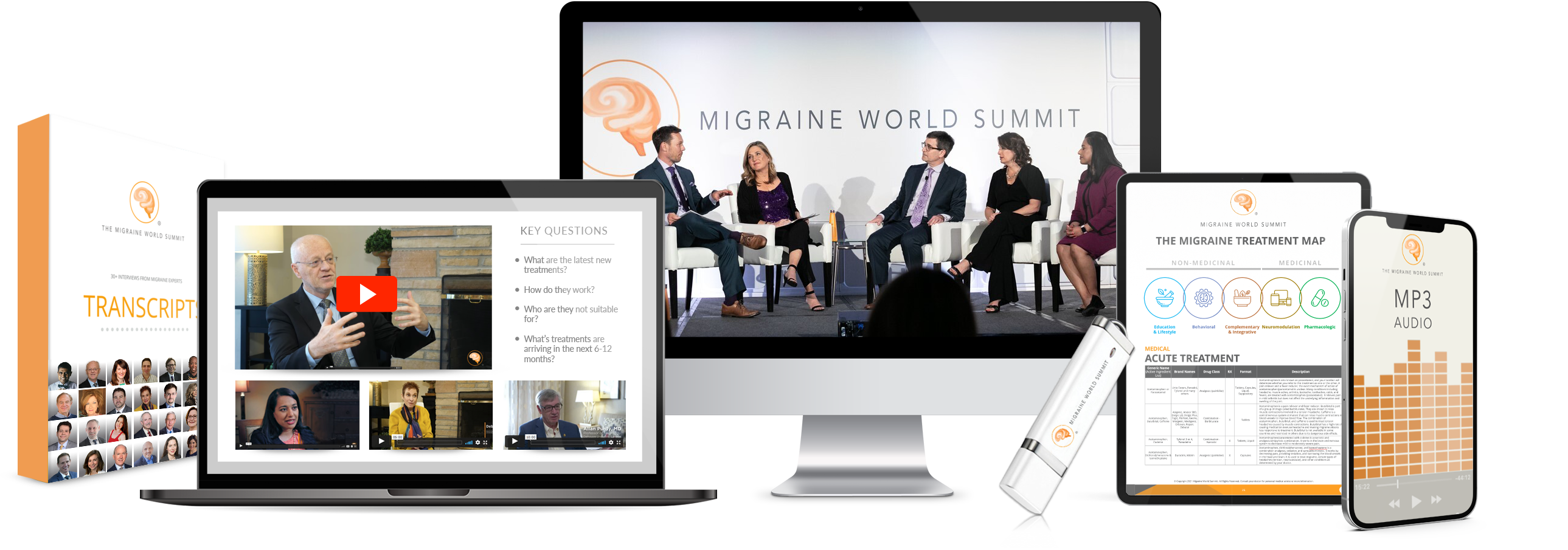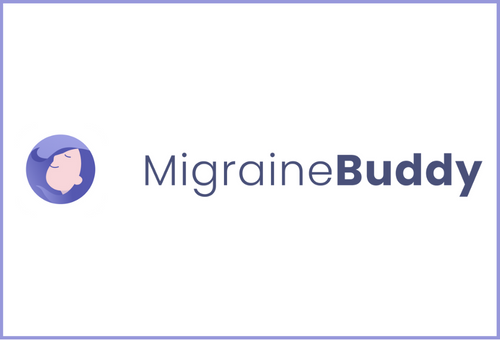Brain-Related Comorbidities of Migraine
You are currently watching a preview of this interview. Unlock the full version by upgrading to an Access Pass bundle! Get FREE access to 8 expert interviews from Day 1 and Day 2 when you register today!
Key Questions
- ¿Cuáles son las comorbilidades más comunes de la migraña?
- ¿Qué es una comorbilidad?
- ¿Qué vincula estas condiciones con la migraña?
- ¿Cómo se identifican la depresión y la ansiedad?
- ¿Qué es la epilepsia y cómo está relacionada con la migraña?
- Si las convulsiones son desencadenadas por un ataque de migraña,
- ¿tratar ese ataque de migraña antes puede prevenir efectivamente la convulsión
- ¿Qué es la esclerosis múltiple y cómo está relacionada con la migraña?
- ¿Qué es la fibromialgia y cómo está relacionada con la migraña?
- ¿Cuál es el papel de la sensibilización central?
- ¿Qué es un derrame cerebral y cómo está relacionado con la migraña?
- ¿Existe evidencia que respalde una conexión entre la migraña y el riesgo de derrame cerebral?
- ¿Cómo influye el riesgo de derrame cerebral en la elección de medicamentos para tratar la migraña?
- ¿Qué es el insomnio y cómo está relacionado con la migraña?
- Un artículo reciente propone una fuerte naturaleza circadiana de la migraña. ¿Qué sugiere esto sobre la conexión entre la migraña y los trastornos del sueño
- ¿Qué consideraciones son importantes al manejar el tratamiento de la migraña con cualquier comorbilidad?
Interview Notes
- dawnbuse.com
- PubMed
- Albert Einstein College of Medicine
- Headache Cooperative of the Pacific
- Study: “Migraine in America symptoms and treatment (MAST) study: Baseline study methods, treatment patterns, and gender differences”
- Study: “Circadian features of cluster headache and migraine”
- Study: “Demographics, headache features, and comorbidity profiles in relation to headache frequency in people with migraine: Results of the American migraine prevalence and prevention (AMPP) study”
- Study: “The impact of chronic migraine: The chronic migraine epidemiology and outcomes (CaMEO) study methods and baseline results”
- Study: “Migraine signature study (MSS)”
- Study: “International burden of migraine study (IBMS)”
- Study: “Diagnosis, consultation, treatment, and impact of migraine in the US: Results of the OVERCOME (US) study”
Treatments Mentioned
- Biofeedback
- Cognitive behavioral therapy (CBT)
- Exercise/movement
- Healthy diet
- Hydration
- Mindfulness
- Oral contraceptives
- Relaxation exercises
- Sleep hygiene
- Stress management
- Triptans
- Weight management
Please note: The Migraine World Summit’s aim is to bring you a variety of perspectives and expertise, independent of bias or judgment. Alternative theories presented in this video have not been medically reviewed. Views expressed in this interview do not necessarily represent the views of the Migraine World Summit. Please always consult your health care professional and do your own research before making changes to your treatment plan.
This is a Spanish translation of an expert interview from the Migraine World Summit 2024. All interviews have been carefully translated and medically reviewed.

Dawn C. Buse, PhD
Psychologist & Clinical Professor
Albert Einstein College of Medicine
Dawn C. Buse, PhD, is a clinical professor of neurology at Albert Einstein College of Medicine. She is a member of the board of directors of the Headache Cooperative of the Pacific, and a licensed psychologist. She has authored more than 200 scientific manuscripts and has won eight U.S. and international research awards and six professional awards for her work in the field of migraine.
She is a co-investigator on numerous U.S. and international studies, including the American Migraine Prevalence and Prevention (AMPP) study; the Chronic Migraine Epidemiology and Outcomes (CaMEO) study; the Migraine Signature Study (MSS); the International Burden of Migraine Study (IBMS); the Migraine in America Symptoms and Treatment (MAST) study; the Observational Survey of the Epidemiology, Treatment and Care of Migraine (OVERCOME) study; and a recipient of the FDA-sponsored Migraine Clinical Outcome Assessment System (MiCOAS) grant, which is gathering patient input for the development of migraine clinical trial endpoints. She is an advocate for the well-being of patients and healthcare professionals.
Interviews from Dawn C. Buse, PhD
Brain-Related Comorbidities of Migraine
How Migraine Affects Our Mental Health
Staying Hopeful: Treatment Burnout in Chronic Disease
Cultivating Resilience and Strength Through Migraine
How Depression Affects Your Mood: Anxiety & Depression
Is Your Family Time Affected by Migraine?
Behavioral Approaches / Impact of Childhood Abuse

Purchase full access to the entire 2024 Summit. Includes:
- All expert interviews with separate audio (MP3) files & transcripts
- Lifetime on-demand access with no annual fee to 2024 Summit
- Interview Summaries
- Treatment Guidelines
- And much more!
Related Talks for: Day 7 (2024)
Inflammation & Chronic Migraine
Gretchen E. Tietjen, MD
Finding Balance in Vestibular Migraine Diagnosis and Treatment
Kristen K. Steenerson, MD
Migraine Buddy is the #1 headache and migraine tracking application. Recommended by the best neurologists in the world, we empower our users to learn and communicate about their condition. Our community of 2.8 million contribute to migraine awareness and research.

¡Ayúdanos a llegar a más personas! Si disfrutaste de la primera Cumbre Mundial de la Migraña en español, nos encantaría que nos dejaras una reseña de 5 estrellas en Google. Tu opinión es clave para que más personas que conviven con migraña puedan encontrarnos y beneficiarse de la información y apoyo que ofrecemos. ¡Juntos podemos hacer una gran diferencia!






